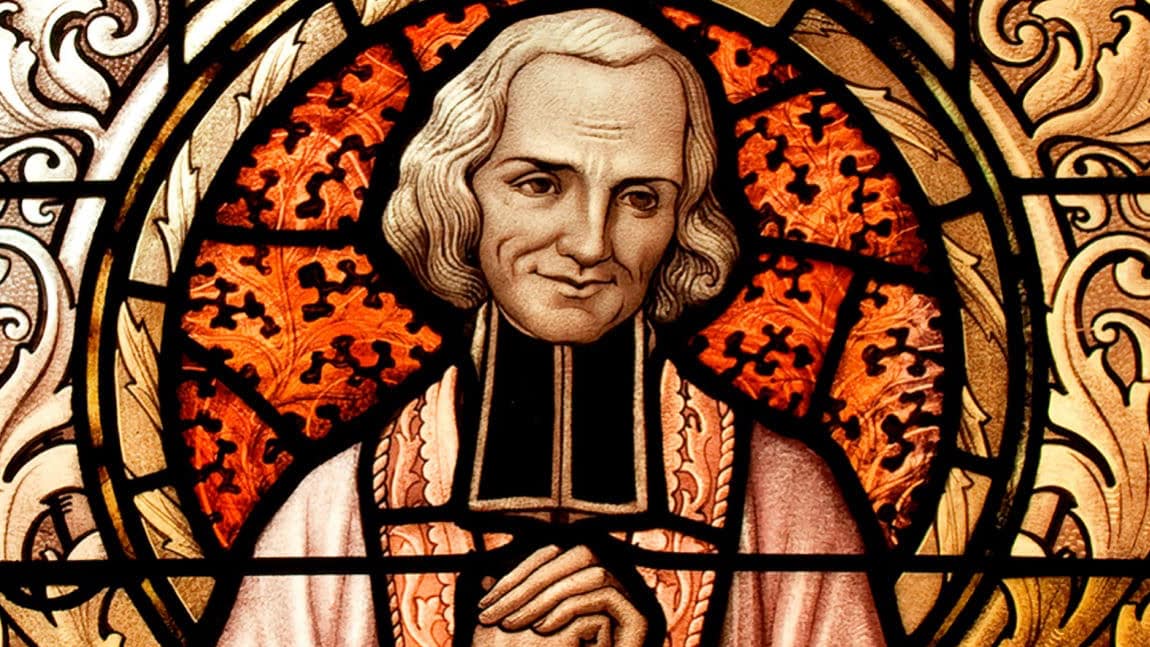A Catholic high school basketball team was about to play for the state championship, and the morning of the game, the pastor of the parish said Mass for the team’s coaches and players. During his homily, the priest talked about how in ten years, the important thing about this basketball season wouldn’t be whether or not the team won the championship; no, the most important thing would be what sort of persons the players had become in trying to win the title. Did this season make them better persons, more loving and more loyal to one another? Did they become more committed? Did they grow as a team and as individuals? As soon as Mass was finished, the priest returned to the sacristy, expecting the team would also immediately leave the church. To his surprise, however, he heard the head coach say to his players, “Everyone remain seated for a minute. Father said something that’s bothering me. I wonder what I’ve helped you become as we’ve worked together this season to win the championship. Have each of you become better human beings? Are you more loving, loyal, and committed? Have you grown as a team and as individuals? If so, then we are a success, regardless of what happens in today’s game. If not, then we’ve failed God, failed our school, and failed each other. I pray to God that we have not failed” (Link, Illustrated Sunday Homilies, Year A, p. 86). These were powerful and dramatic words, and they came at a very significant moment.
Sports coaches live for the chance to take their teams to the championship game, yet this high school coach was humble and honest enough to recognize for himself, and to remind his team, that there was something much more important at stake. Nothing in this world can ever take priority over finding God’s Kingdom and becoming a member of it. Success in this life won’t be measured by how much we earn or achieve, but by whether we are prepared for the life to come.
In his Letter to the Romans (8:28-30), St. Paul tells us that “all things work for good for those who love God.” Part of the reason for this is that those who truly love God want what He wants. When we have this proper set of values and priorities, everything else falls into place; when we’re in harmony with our Creator, we’re also in harmony with the rest of His creation. The First Book of Kings (1 Kgs 3:5, 7-12) gives us a wonderful, though temporary, example of this. King Solomon had the most glorious reign in Israel’s history, though in his later years he turned away from the Lord and gave himself over to a life of sin, thereby undoing most of his great accomplishments. As a youth, however, having just ascended to the throne following the death of David his father, Solomon had a sense of what really mattered. He asked the Lord not for power or wealth or victory over his enemies, but for the wisdom he’d need to serve the Lord and to govern His people properly. This answer was so pleasing to God that He granted Solomon not only unsurpassed wisdom, but also an unprecedented number of blessings, and these would always be his so long as he remained faithful to the Lord.
Earthly blessings are sometimes—though certainly not always—a sign of God’s favor; in the Gospel of Matthew (13:44-52), however, Jesus reminds us that the greatest blessing is membership in the kingdom of heaven. No matter how much power, wealth, status, or success we have on earth, these things will fade away—and so it’s necessary to use and perhaps even sacrifice all these things so as to obtain what will truly last. When we have the opportunity to acquire something that surpasses in value everything else we have, wasting this chance would be foolish—just as it would have been foolish for the man who found a buried treasure or the merchant who found a fine pearl to ignore or waste their once-in-a- lifetime opportunities. They didn’t waste their chance. Jesus wants us to respond in this same spirit of urgency, gratitude, and delight to His invitation to become part of His kingdom.
St. John Vianney, the holy French priest known as the Cure d’Ars, used to say to his people, “My dear parishioners, we must all do our very best to get to heaven. There we shall see God. How happy we shall be! We ought to go there all in a procession, with the parish priest in front. We must all of us get to heaven. If some of you get lost on the way, it will spoil everything!” When people wanted to talk to him afterwards, St. John Vianney would give them a few minutes, but if they kept him from his duties by taking too much of his time, he would say, “We can talk in heaven” (Castle, Quotes & Anecdotes, 1st edition, p. 95). This story is a lesson or reminder for us: getting to heaven, and helping others do this too, is the reason we’re here on earth, and we must avoid too much talking, working, relaxing, or anything else that interferes with this goal. We have to balance our short-term earthly responsibilities with our ongoing, all-important spiritual duties.
I think this means three things in particular. First of all, God must always come first; we’re not entitled to enjoy the wonders of creation if we fail to acknowledge our Creator. For instance, Sunday is meant to be a day of rest and recreation, a time for family events and enjoyable activities—but only after we’ve attended Mass and offered God our loving worship. There are many things we need and want to do each day, but if we don’t also spend some time in prayer, we’re failing God and ourselves. Secondly, we must keep on reminding ourselves that life on earth is temporary, that heaven is our goal, and that the most important day of our lives will be our final one. If we remember this, we won’t get too excited or proud over our successes, or too upset or depressed over our failures; living with a higher spiritual purpose will help us keep things in proper perspective, and—more importantly—help us be ready for death whenever it comes. Thirdly, we should consecrate all our earthly projects and daily activities, no matter how routine, by offering them to God, by doing them for His glory, and by asking for His blessing upon them. The Lord is intimately interested in everything we’re doing, and He wants to be with us not only on Sundays, but throughout the week. Silently talking to the Lord throughout the day, offering Him all our works and experiences, and seeking His guidance in all our important decisions, are ways of slowly but surely transforming life into an ongoing source of grace and blessing for ourselves and those around us.
Heaven is far more wonderful than we can comprehend or imagine, and it’s worth any effort or sacrifice on our part. Jesus offers us a gift of immeasurable value, but it’s up to us to accept it. Let us make this our highest priority—and may our prayers and good example inspire others to make this same choice.








